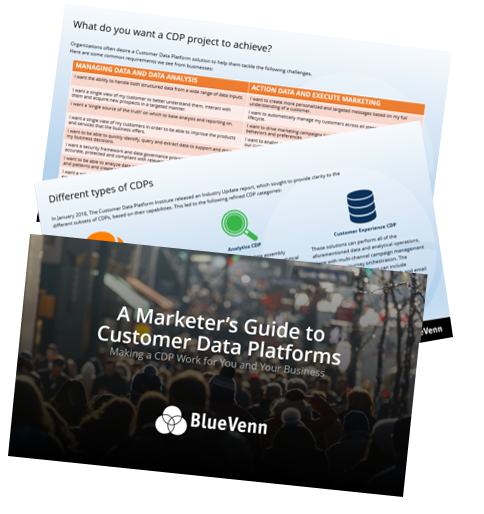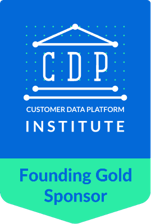 As we all know, the world changed with the outbreak of COVID-19 and that change has dramatically affected our customers’ buying behaviors. A recent survey found that 41% of respondents are now shopping online for things they would normally purchase in-store. While this change in behavior may be through necessity, it does however create many issues for marketers who are under increased pressure to keep up with these changing demands, and ensure they provide a personalized and meaningful customer experience, no matter the customer’s chosen engagement channel(s).
As we all know, the world changed with the outbreak of COVID-19 and that change has dramatically affected our customers’ buying behaviors. A recent survey found that 41% of respondents are now shopping online for things they would normally purchase in-store. While this change in behavior may be through necessity, it does however create many issues for marketers who are under increased pressure to keep up with these changing demands, and ensure they provide a personalized and meaningful customer experience, no matter the customer’s chosen engagement channel(s).
Three of the key questions that businesses are attempting to answer are:
- Which customers have made the transition to online buying/browsing?
- Which customers are starting to come back into our physical stores/premises?
- Which customers have potentially changed their purchasing behaviors forever?
For marketers, and businesses, to be able to answer these questions it is essential that they understand their customers in totality. More specifically, that they can track an individual customer, or device, between the online and offline worlds.
How Identity Resolution helps to know your customers better?
In order to gain a deep understanding of your customers, and their behaviors, identity resolution is key.
Often customer data resides across many different databases, systems, spreadsheets and cloud solutions. It is also usually unclean and, where the Personally Identifiable Information (PII) is not available, it can be a challenge to link behaviors and transactions to an individual. When you think that businesses can hold customer data in as many as 90 different systems (sometimes more), identifying individuals at scale can be an arduous process. Identity resolution is therefore the process of stitching these many data sets together to create unified profiles of known or anonymous individuals. Essentially, what you are achieving through identity resolution is the centralization of all your customer knowledge into a single, trustworthy and usable profile that includes every click, visit, purchase, like, return, interaction etc.
Organizations that have automated identity resolution at scale have an advantage over their competitors because it creates efficiencies that empower the marketing team to focus on delivering business value, rather than contemplating how to access their data, and removes bottlenecks between IT and Marketing by removing the reliance on technical teams. Importantly, it also enables the business to track customer behaviors from offline to online and back again.
Efficiencies and bottlenecks will vary by business, but can include the removal of manual matching processes, manual creation of campaign audiences and segments, or the removal of the waiting time for other departments to provide marketing with the answers to their data-driven questions.
Brands that have recognized the importance of identity resolution will apply technological solutions such as a Customer Data Platform and an identity graph to help solve the challenge of linking 1st, 2nd and 3rd party data sets together. As shown in the global Customer Data Excellence survey, CDP-equipped organizations were proven to outperform their marketing goals 2.5X more than others. These organizations are able to understand how customer interactions through the website, the app, or offline through a customer services call or visit to the physical premises, link together to form the full customer journey. In turn, this then provides positive benefits across all marketing disciplines including advanced requirements for personalization, attribution and predictive modeling.
Identity resolution is a powerful tool that, when successfully deployed, will align with your specific business goals. Whether that is to acquire more customers, deepen your existing customer knowledge, improve retention, cross-sell, up-sell, or a combination of all of these, your approach to ID resolution will have profound effects by enabling your organization to be accurate and informed without all the data wrangling that usually occurs.
Webinar: What is Identity Resolution & how does it enable omnichannel marketing?
- The principles of identity resolution
- Different approaches to identity management
- Top tips for creating a set of identity resolution requirements for your organization
What marketers can do once they know their customers better…
Once identity resolution is in place to create holistic and trustworthy customer records the focus for marketers is not about how to access the data anymore but creates a transformation shift into considering how the business can use the newfound trustworthy data foundation to deliver an omnichannel customer experience.
1-to-1 omnichannel marketing is the aspiration for us all because customers expect us to use the data we hold about them, whether that is observed or explicitly shared, to deliver a tailored experience. It is therefore important to leverage the data we’ve been collecting over the years to deliver on those expectations.
If you think about your own browsing and purchase behaviors, maybe when your favorite clothing brand releases a new collection, you will look at those new products on the website. Perhaps via a click through on an email or by jumping across from your social media browsing. This online behavior could trigger advertisements for the new collection as you go about your online activities.
The next part of your buying journey however, may be to go into your local store and physically browse the new products, looking at colors and sizes, maybe discussing a few details with one of the in-store staff…
Let us say that this store visit usually leads to you purchasing at least one item; this is where your experience diverges. Some brands are able to link your in-store and online activity together so you never see an advert or offer for the product you have already purchased. Instead, what you do see are complementary products, or in some exceptional cases, imagery of models displaying your purchased product alongside those complementary products.
This is all possible because the brand is able to resolve your identity, link you to your devices and therefore tie together your online and offline behaviors. This of course leads you to expect the same experience with every other brand, which then leads to disappointment when that experience falls short.
So, when customers are demanding personalized experiences you need to understand identity resolution or risk losing a competitive advantage. Delivering the optimal customer experience through a deeper customer understanding is therefore set to become the new battleground, superseding even price and discount in the final stages of the buying process, which begs the question - can we afford to not know our customers and to not meet their brand experience expectations?!
In an increasingly competitive and unpredictable market, due to external factors such as a global pandemic, business leaders need to recognize the untapped value of their customer data and focus on improving their customer knowledge with identity resolution. This enables a brand to show their customers that they understand their personal needs and desires. Brands need to be able to demonstrate this deeper knowledge will succeed whereas others will stand still. More tactically, in the current COVID-19 situation, it enables an organization to understand the transition of their customers from offline to online and back again to retain, grow and delight their customers in spite of the challenges we face.











